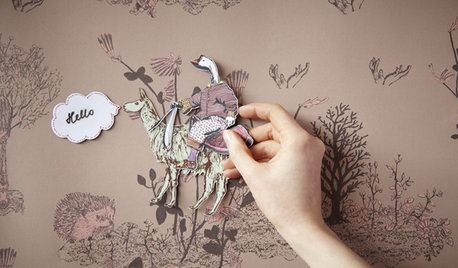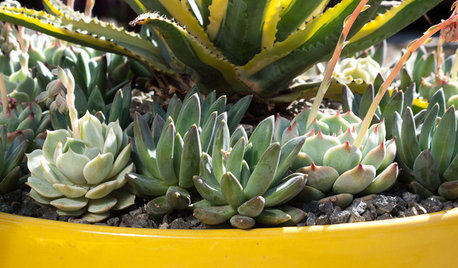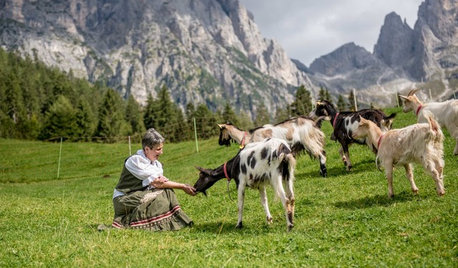Donkey questions
17 years ago
Related Stories

DECORATING GUIDESDesign Tastemaker: Sian Zeng's Magical Prints
Enchanting magnetic wallpaper, surreal cushions and more add an element of fantasy to indoor spaces
Full Story
CONTAINER GARDENS3 Steps to Creating Quick, Easy and Colorful Succulent Containers
Take a bright container, add a colorful succulent or two and have a professional, summery design in minutes
Full Story
INSPIRING GARDENSInside Houzz: A Waterfront Property Ditches the Grass for a Garden
New drought-tolerant plantings and outdoor gathering spaces help this California backyard take in the view without wasting space or water
Full Story
MEDIA ROOMSGet It Done: Organize the Media Cabinet
Ditch the worn-out VHS tapes, save valuable storage space and find hidden gems with this quick weekend spruce-up
Full Story
BATHROOM DESIGNThe Funniest Bathrooms on Houzz
Check out these creative loos for a chuckle, then share your own fun bathroom designs
Full Story
FARM YOUR YARDHello, Honey: Beekeeping Anywhere for Fun, Food and Good Deeds
We need pollinators, and they increasingly need us too. Here, why and how to be a bee friend
Full Story
FARMHOUSESWorld of Design: See How 9 Families Live and Farm on Their Land
Join us as we visit the homes and farms of passionate food producers and hear about rural life around the globe
Full Story
KITCHEN DESIGNKitchen of the Week: A Cottage-Chic Kitchen on a Budget
See how a designer transformed her vacation cottage kitchen with salvage materials, vintage accents, paint and a couple of splurges
Full Story
DREAM SPACESWorld of Design: 15 Swimming Pools With Dream Views
Join us on a refreshing tour of spectacular swimming pools from Sydney to Moscow
Full Story
BROWNColor Guide: How to Work With Brown
It's all over nature and the decorating world too. From light latte to dark walnut, there's a brown for everyone
Full Story


fancifowl
Dibbit
Related Discussions
Making Concrete Donkey and Carts
Q
Burro's tail/ Donkey's tail question
Q
kalanchoe - donkey's ear baby care?
Q
hay for donkeys
Q
nhsuzanne
Rose_Qld
cindydj
pamghatten
millefiori
bulldinkie